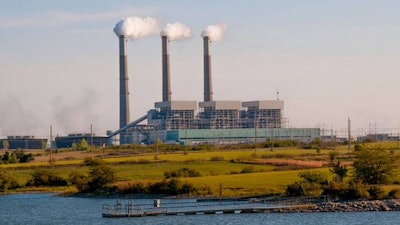
KANSAS CITY, Kan. (AP) — Two employees were killed when an elevator filled with superheated, "flesh-boiling" steam at a Westar Energy plant in Kansas this summer, according to a federal lawsuit.
The lawsuit was filed Wednesday on behalf of the children of Damien Burchett, who died June 3 alongside Jesse Henson at a plant near Topeka. The family is suing three companies that manufactured and maintained the turbine and valve. Westar is not named in the lawsuit.
The lawsuit also challenges a $250,000 state limit on compensation for survivors of people who die in on-the-job accidents, The Wichita Eagle reported.
After a three-month shutdown for routine maintenance, two of three steam turbines went back online without incident, but a third turbine didn't have full power, according to the lawsuit.
Burchett, of Overbrook, and Henson, of Manhattan, took an elevator to investigate a loss of steam at a safety relief valve, which is supposed to vent steam outside the plant if the pressure gets too high.
"Upon the elevator door opening on the 14th floor, (the men were) engulfed in flesh-boiling steam that had filled the room," the lawsuit said. "(Burchett) was exposed to the steam release and suffered severe burns that caused him to endure a horrific death."
Investigators determined the steam relief valve had either been ripped apart or failed altogether, allowing the steam to fill the room, according to the lawsuit.
The lawsuit names Team Industrial Services, which did the maintenance work; Emerson Electric Co., the manufacturer of the steam valve; and Siemens, which built the turbines. Representatives for Siemens and Emerson said they do not comment on pending litigation. Team Industrial did not immediately return requests for comment on Thursday.
Kansas law exempts employers from legal action, leaving workers' compensation insurance as the sole remedy, said John Carmichael, an attorney and member of the state House Judiciary Committee. That immunity doesn't extend to subcontractors or the manufacturers of equipment, Carmichael said.
State law also prohibits state courts from awarding more than $250,000 for damages such as suffering and loss of companionship, which are not easily quantifiable.
The lawsuit contends that law violates constitutional guarantees of equal protection, separation of powers, right to jury trials, taking private property without just compensation, due process and free and open access to the courts.






















